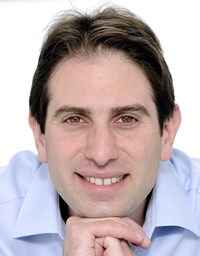Bill Gates and Melinda Gates gave the first ever joint commencement speech in Stanford University’s history in June. Despite the historic and demanding nature of the occasion – commencements are increasingly high profile events to mark the graduation of US college students – the Gates appeared relaxed and at ease. Early in the speech, they donned mock ‘nerd’ glasses in a parody of themselves and Stanford’s famous tech scene.
But this was a rare moment of humour.
Most of the speech was serious and intense but also optimistic. It was serious because the majority of the speech focused on their drive to address extreme poverty, a central theme of the foundation’s work. It was intense because Melinda Gates gave an impassioned account of the human suffering that motivated her philanthropic endeavours. It was optimistic because, echoing the title of the Gates Foundation’s Impatient Optimists blog, and the culture of Silicon Valley, Bill Gates identified the inexorable drive for innovation as a solution to global problems.
However, this was a tempered optimism. The Gates acknowledged their own privilege and implored the graduating seniors to remember theirs. They also acknowledged the potential for technology to increase inequality as well as reverse it and the limits of markets-only based solutions.
Yet reliance on markets to generate income for grantmaking, in common with other endowed foundations, was the major omission of the speech. The Stanford campus this term was a hotbed of activism, with well-organized campaigns by students calling on the university to divest its endowment from coal and the Gates Foundation to divest from G4S, a private security company. Over 1,200 Stanford students signed a petition calling on Gates to divest. Protest and disruption of the Gates’ speech was planned. Yet the issue was diffused by news of the Gates Foundation’s full divestment in the week before commencement.
While students praised the decision, some were disappointed that the Gates’ speech failed to mention the issue, and the foundation’s investment policies more generally. To some, this came across as a lack of the very empathy with the concerns of others that they encouraged students to show. Some others expressed disappointment that concerns about the content and direction of the foundation’s grantmaking were not addressed, most notably in areas such as US education reform and the foundation’s reluctance to support access to abortion as part of their effort to expand global reproductive health services. Nor was there mention of the issues of accountability inherent in the power concentrated in the hands of a foundation board of four spending $3 billion per year.
This was an unusual and, in many ways, impressive speech. More substantial than Michael Bloomberg’s commencement address the previous year, more reflective than Bill Gates’ speech at the Harvard commencement in 2007; more earnest than Steve Jobs at Stanford in 2005.
At times, the Gates sounded presidential in their range and tone; at others it was as if we were listening to a husband and wife sharing their thoughts about making the world a better place. Perhaps it is this combination of the personal and the political that is increasingly making big philanthropy a force to be reckoned with on the global stage.
Charles Keidan is a visiting scholar at Stanford University’s Center on Philanthropy and Civil Society and a philanthropy practice research fellow at City University, London.






Comments (1)